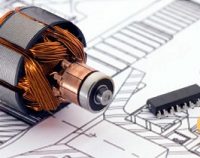Delaware-Electrical Engineering Package: 24 PDH
$80.00
Delaware – Ethics including DE Laws and Rules for Professional Engineers: 4 PDH
Design and Development of Hybrid Power Plants: 4 PDH
In this course the student will understand the hybrid power plant and the necessary design and planning details required to ensure reliable and efficient means for power production.
Compressed Air Energy Storage and Pumped Storage Hydropower Concepts: 4 PDH
In this course the student will understand understand current Compressed Air Energy Storage (CAES) and Pumped Storage Hydropower (PSH) technologies and explore future advances of this technology by examining the feasibility of a variety of different concepts.
Energy Storage Technology Cost and Performance: 4 PDH
In this course the student will understand a variety of different energy storage technologies and explore their advantages and disadvantages with an in-depth cost and performance comparison. This course follows the report: Energy Storage Technology and Cost Characterization Report, published by the U.S. Department of Energy (DOE).
Electrical Storage Guide for Electrical Engineers: 5 PDH
This course provides a thorough overview of current electrical storage technologies including batteries, flywheels, compressed air energy storage (CAES), and pumped storage hydropower (PSH) and is a how-to guide for engineers to aid in the selection, procurement, installation, and/or operation of stationary energy storage systems in today’s electric grid.
Analysis of National Charging infrastructure for Electric Vehicles: 3 PDH
This courses addresses the fundamental question of how much plug-in electric vehicle (PEV) charging infrastructure is needed in the United States to support both plug-in hybrid electric vehicles (PHEVs) and battery electric vehicles (BEVs). In this course the student will understand PEV charging infrastructure requirements and analyze a range of plausible scenarios that consider the relationship between the evolution of the PEV fleet and charging infrastructure.
Preview Course: Delaware Ethics including DE Laws and Rules
Preview Course: Design and Development of Hybrid Power Plants
Preview Course: CAES and PSH Concepts
Preview Course: Energy Storage Technology Cost and Performance
Preview Course: Electrical Storage Guide for Electrical Engineers
Preview Course: Analysis of National Charging infrastructure for Electric Vehicles



